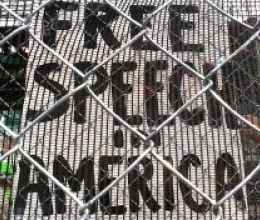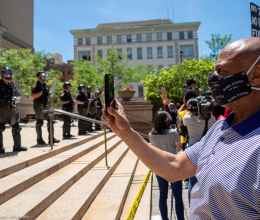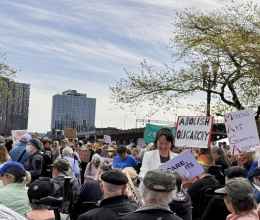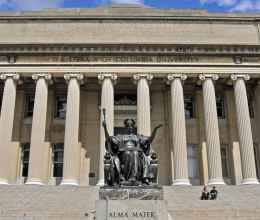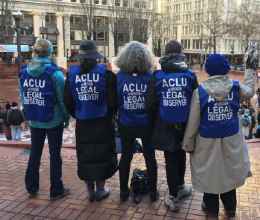
The militarized and heavy-handed police approach to protest in Portland is expensive, dangerous, and threatens our democracy.
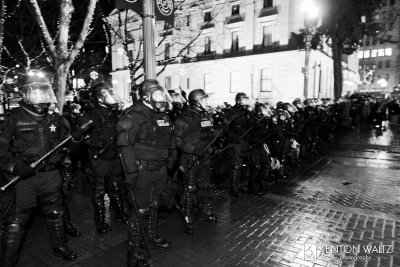
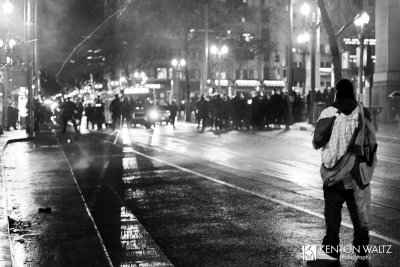
Hey @tedwheeler here is the video I was shooting when the @PortlandPolice started throwing flash bangs into the intersection. pic.twitter.com/kEb5722MMS
— SteveWyshy (@SteveWyshy) January 23, 2017
In a joint report, “Lethal in Disguise: The Health Consequences of Crowd-Control Weapons,” The International Network of Civil Liberties Organizations (INCLO) (which the ACLU is a member of) and Physicians for Human Rights have documented the health consequences of these weapons. On kinetic impact weapons (KIPs), such as the sting-ball grenades deployed by the Portland Police on Friday, the report states:
“…KIPs cause serious injury, disability, and death…[S]evere injuries are more likely when KIPs are fired at close range; some types of KIPs have the same ability to penetrate the skin as conventional live ammunition and can be just as lethal. When launched or fired from afar, these weapons are inaccurate and strike vulnerable body parts, as well as cause unintended injuries to bystanders. Therefore, there are significant doubts that these weapons can be used in a manner that is simultaneously safe and effective.”
It is clear that responding to peaceful protests with militarized and excessive force puts both the public and police officers in harm’s way, but it also risks the very fabric of our democracy. This kind of policing shuts down First Amendment activity. It is no longer free speech and free assembly when the city of Portland directs its militarized police force to control the direction and duration of a protest. If we do not challenge the city’s use of militarized police to control and shut down a peaceful protest we leave the door open to more oppressive policing in the future. The City of Portland has long prided itself as being a hub for First Amendment activities of all kinds, but these heavy-handed police tactics, if not checked, will have long lasting effects on free speech and expression in our city.

